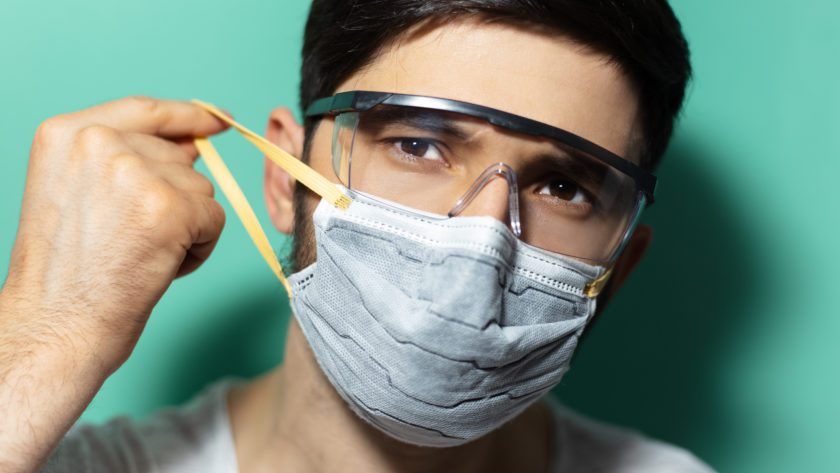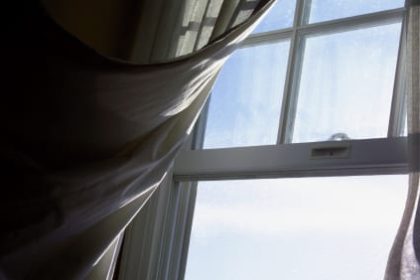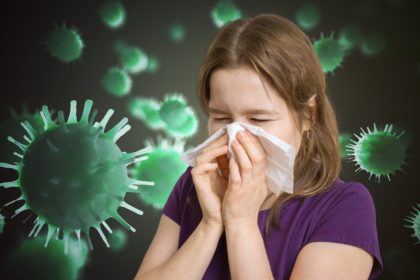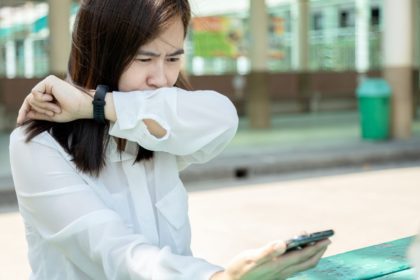It’s becoming commonplace, if not required, that you wear a mask when venturing out in public, such as the grocery store or pharmacy. The mask adds a layer of protection against the COVID-19, but what about your eyes? Here are some tips to protect you from infection.
Coronavirus Can Spread Through the Eyes
To slow the spread of coronavirus, experts say guarding your eyes is as important as guarding your mouth, nose, and hands. Here are ways you can get it…
DIRECT TRANSMISSION: When an infected person coughs, sneezes, or speaks, the virus (which attaches to droplets of saliva or mucous) are ejected from their mouth or nose into the air. These droplets can land in the mouths, noses, or eyes of people who are nearby, or they can be inhaled into the lungs of those within close proximity.
INDIRECT TRANSMISSION: These infected respiratory droplets fall to the ground or land on other surfaces. The virus can contaminate commonly touched surfaces and transfer from hands to eyes, nose, or mouth.
AIRBORNE TRANSMISSION: Researchers are exploring the possibility that the coronavirus can be airborne — meaning the infected particles are smaller than “droplet” size and thus, can remain suspended in the air for long periods of time. It is also being explored if detectable virus aerosols are viable and can infect people.
In preprint and not yet peer reviewed studies at the University of Nebraska Medical Center, research samples indicated that the virus is shed into the air and the particles are stirred up:
- When an infected person coughs or sneezes.
- When infected person goes to the bathroom. (Higher concentrations of the virus were found in the air near patients’ toilets.)
- When anyone touches a surface contaminated with the coronavirus.
1. Glasses and Sunglasses
- The best way to protect the eyes is to start wearing glasses. Opticians say the sale of glasses have gone up since the outbreak of COVID-19.
- To prevent possible exposure, keeps your hands off your face, and don’t rub your eyes. The virus can reach your eyes when infected particles enter the eyes directly or they can enter indirectly by rubbing or touching your eyes with contaminated hands.
- Glasses/sunglasses don’t provide a full barrier from respiratory droplets that may be sprayed in your direction, but they provide more than none.
- Wrap-around sunglasses provide a little more protection.
How to Disinfect Your Glasses
You set your glasses down on different surfaces which are potentially contaminated (tables, desks, counters), then put them on your face (next to your eyes). Think of your glasses as you would your hands and face — keep them clean! They collect dead skin cells, germs, oils, dirt, makeup, and sunscreen.
NEVER EVER clean your glasses DRY — such as rubbing them dry with your shirt, tissue, paper towel, toilet paper, or even a microfiber cloth. This quick fix will cause significant damage to the lenses over the long term. There is no way to buff out scratches in plastic lenses.
Your shirt and microfiber cloth harbor dust, debris, and other particles scratch your lenses as you move the fabric around. Always use some sort of liquid (mild soap and water or a cleaner) to clean your glasses. Breathing on your lenses is not considered “wetting” them down.
Per the American Optometric Association, here’s how to clean your frames. Get in the habit of disinfecting them daily and after being outside:
- Run the frames under cold or lukewarm water. Never use hot water! (Hot water can distort some plastic frames and decrease the coating on some lenses.)
- Put a small drop of a simple, basic dish soap, hand soap or dish soap on your fingertips. (No citric-based detergent as it can damage the lenses and no lotion-based soaps.)
- Gently rub both sides of the lenses, the frames, earpieces, and nose pads massaging well with the soap. Rub for 20 seconds. You can use a soft-bristled toothbrush and lightly brush the small nose pads where oil, sunscreen, makeup, and dirt build up. Don’t brush the lenses.
- Rinse THOROUGHLY with warm water. Be gentle.
- Gently dry with a clean, microfiber cloth. Clean the cloth once a week and hang dry.
- Inspect glasses to be sure all oil, smudges, and dirt are cleaned off.
Never use vinegar, window cleaner or toothpaste to clean your glasses.
2. Contact Lenses
Contacts only cover 30 to 40% of the ocular surface. If you wear them, experts suggest wearing glasses over them when outside the home. The glasses protect your eyes from respiratory particles as well as dust. When foreign objects get into your eyes, you’ll tend to rub the irritated eye.
Better yet, stop wearing contacts during the COVID-19 pandemic and wear prescription glasses instead. Contact lens wearers tend to touch their eyes more. Be sure to follow the recommended procedures for disinfecting, cleaning, handling, and inserting them.
3. Safety Glasses/Eye Shield
Regular glasses protect the front of the eyes, but not the sides and area around your eyes, although they offer some protection. Wear safety eyewear or a face shield to shield your eyes from infected respiratory particles if you’re caring for a sick person or potentially exposed person.
4. Eye Hygiene
Part of good eye hygiene is keeping your face and glasses clean. If you have to rub your eyes, sanitize your hands and use a tissue or wear clean gloves. Dry eyes tend to get itchy leading to more rubbing, so consider using moisturizing drops.
5. Eye Care Travel Kit
Always carry these items with you to protect your eyes:
- Hand sanitizer and medical gloves in case your eyes itch, tear, or get irritated.
- Facial tissues
- Carry moisturizing drops.
- Individually-wrapped lens wipes (remoisten if dried out).
Coronavirus and Conjunctivitis
A recent study from China suggests that up to 1/3 of people with coronavirus also experience eye problems, such as conjunctivitis or “viral pink eye”. The coronavirus can be spread by touching the fluid of an infected person’s eye or any items that been in contact with the fluid.
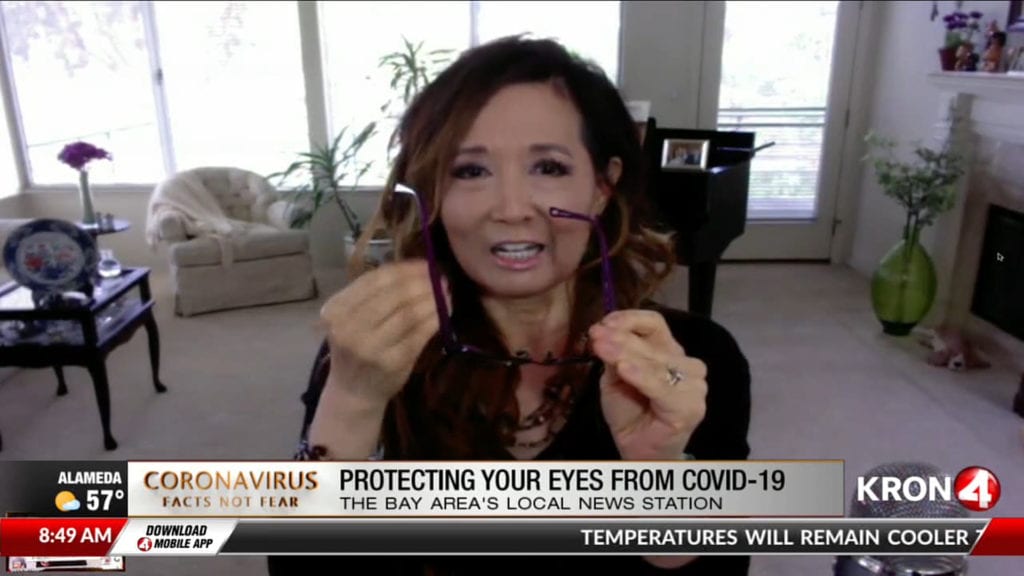
![]() Karen’s Fit Tip: Wear glasses as a layer of protection and disinfect them daily. Avoid touching your eyes. Wash your hands, face and your glasses.
Karen’s Fit Tip: Wear glasses as a layer of protection and disinfect them daily. Avoid touching your eyes. Wash your hands, face and your glasses.

